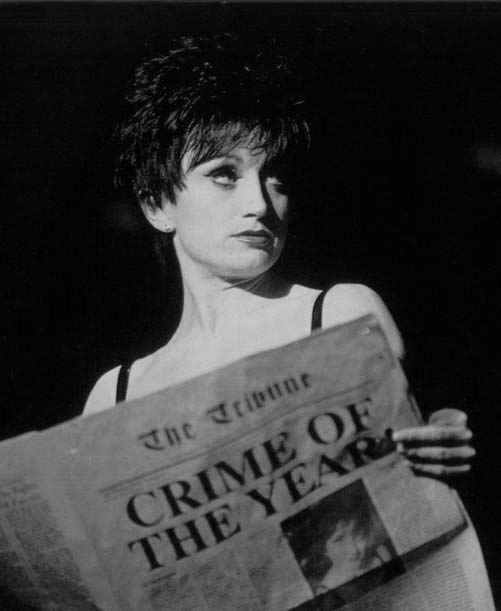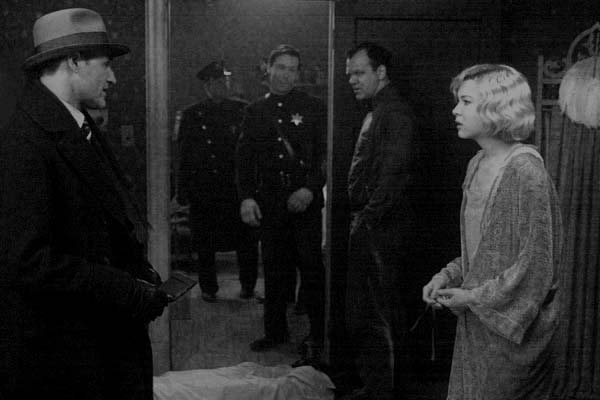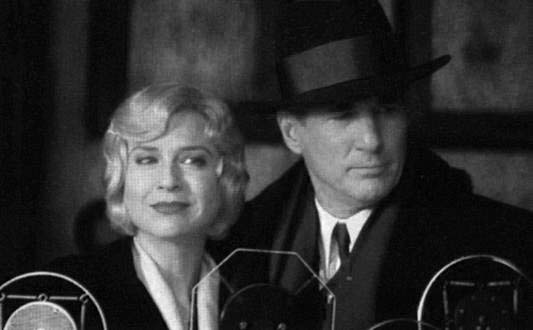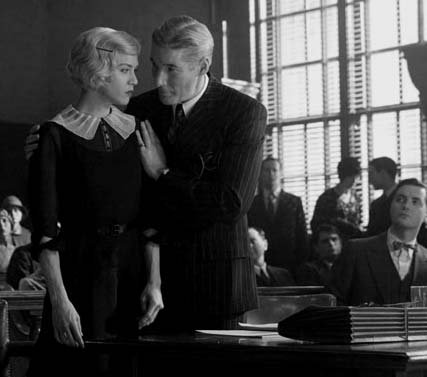Summary: Set in 1920s Chicago, the movie opens in a jazz club where the famous Velma Kelly is about to perform her last show before going to jail for murder. In the audience is Roxie Hart, a girl aspiring for an act of her own to escape her dreary life with her simple-minded husband, Amos. She meets Fred Cassely, a man she believes can help her secure fame on the stage. Upon learning that he has been lying to her, she shoots him and goes to jail where she becomes an occupant of Murderesses Row. Here with the help of lawyer Billy Flynn she learns the importance of a good story and that murder is not just a crime but a doorway to fame.
The City as an Environment
The city of Chicago, much like big cities as a whole, revolved around jazz, alcohol, and a newly found sexual freedom at this time. All three were associated with one another and associated with the idea of crime. The literature about this time period depicts a gritty, hard-edged side of the city. The movie focuses on this nature particularly from the aspect of the criminal and begins its story within this social circle.
Murderess' Row Chicago: Killing for an Act
Girls Claim "He had it coming!"
The pretext behind the movie is that with enough money and the right connections,you can get away with murder, literally. When the murderesses sing the song,"Cell Block Tango" the viewer learns that one of the six women is actually not guilty of the crime of which she is accused. She is the only woman who cannot afford the legal expertise of Billy Flynn and is therefore the only woman hung for a crime.
She had this to say when asked "Yeah, but did ya do it?": " Uh uh...Not Guil..ty" During the song each guilty person pulls out a red scarf upon completion of their story, but Hunyak is the only one to pull out a white scarf, representing her innocence. This injustice is often overlooked by the viewer because of the focus on using the media to one's advantage to turn the courtroom into a circus to achieve the ends that one desires.
"Roxie starting to crack"
Their stories:
Liz: "You know how people have these little Habits that get you down. Like Bernie. Bernie liked to chew gum. No, not chew. Pop. Well, I came home this one day and I am really irratated, and looking for al ittle sympathy and there's Bernie layin' on the couch, drinkin' a beer and chewin'. No, not chewin'. Poppin'. So I said to him, I said "Bernie, you pop that gum one more time..." and he did. So I took the shotgun off the wall and I fired two warning shots... ...into his head."
Annie:" I met Exekiel Young from Salt Lake City about two years ago and he told me he was single and we hit it off right away. So, we started living together. He'd goo to work, he'd come home, I'd mix him a drink, we'd have dinner. Well, it was like heaven in two and a half rooms. And then I found out, 'Single'he told me? Single, my ass. Not only was he married...oh, no, he had six wives. One of those Mormons, yu know. So that night, when he came home, I mixed him his drink, as usual. You know, some guys just can't hold their arsenic. "
June: "Now I'm standin' in the kitchen carvin' up the chicken for dinner, mindin' my own business , when in storms my husband Wilbur, in a jealous rage. 'You been screwin' the milkman!' He says. He was crazy and he kept on screamin', 'You been screwin' the milkman!' And then he ran into my knife...He ran into my knife ten times!
" All: He Had it Coming He Had it coming He only had himself to blame If you'd have been there If you'd have seen it Velma: I Betcha you would have done the same"
Motivations behind the Murders
The women each had their own personal reasons for doing what they did, each felt completely justified in their actions. They felt no remorse because rather than looking at the crimes they commited they viewed it as merely getting back at men who had done them wrong. In the scene where the police come to investigate the murder Roxie at first lies to the officials, and has Amos do the same. Eventually after the neighbor testitifies against Roxie telling of her infidelities with the deceased Roxie breaks down screaiming "That bastard! I killed him once, and I'd kill him again!" Roxie and all the other woman feel no remorse for their crimes because they feel that tthey were the real victims in the situations.
The murders these women commited made them feel powerful like they never had before, which is similiar to the power that engulfed Bigger Thomas after committing his first murder in Native Son. Bigger and the women alike were previously oppressed in their daily lives, to no fault of their own. They were simply products of their environment and the long terms effects that oppression has on individuals.
.
Velma: "My sister, Veronica, and I did this double act, and my husband Charlie used to travel round with us. Now, for the last number in our act we did these 20 acrobatic tricks in a row, 1,2,3,4,5...splits, spread eagles, back flips, flip flops, one right after the other. Well, this one night, we were in Cicero, the three of us, sittin' up in a hotel room, boozin' and havin' a few laughs, and we ran outta ice, so I went to get some. I came back, opened the door, and there's Veronica and Charlie, doin' Number Seventeen - The Spread Eagle."
Mona: "I loved Alvin Lipschitz more than I can possibly say. He was a real artistic guy...sensitive...a painter. But he was troubled. He was always tryin' to find himself. He'd go out every night looking for himself and on the way he found Ruth, Gladys, Rosemary, and Irving. I guess you can say we broke up because of artistic differences. He saw himself as alive and I saw him dead. "






